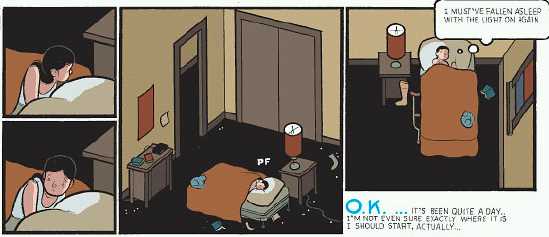Funny how when it comes to a form like comics being bastardized, Jessa Crispin has no problem broadsiding the critics for declaring a specific genre less than literary. But that apparently isn’t the case when it comes to chick lit. Without citing a single example, Crispin suggests that “chick lit treats women like they’re stupid.” Well, that’s interesting. Because while reading Weiner’s latest, Goodnight Nobody, I didn’t really get the sense that the female characters within its pages were stupid. And while I never really cared for the Bridget Jones books (although I have enjoyed the three Weiner novels that I’ve read), I never got the sense that these novels were contributing to idiotic depictions of women. Unless Crispin somehow believes that any book featuring a professional woman who pursues a relationship or contends with family or pregnancy is dumb (which, interestingly enough, would discount nearly all of the books she links to). Even when certain “chick lit” novels disagreed with me, I nevertheless applauded these books for placing women’s issues to the forefront and having the courage to place these plots within popular literature.
One might dislike the genre of popular literature, but from a feminist perspective, it’s a mistake to dismiss the potential effects of popular art towards pointing out the silent rules and folkways which insist women must act in a certain way.
I think what Weiner is commenting upon in this interview is the double standard. Sure, a popular author like Stephen King can be published in the New Yorker and get mad props from literary maestros. But if a woman is a popular author (like Jennifer Weiner), she’s given the snobbish Sittenfeld-style treatment by her peers. Why is there such a double standard?
In fact, I applaud Weiner for featuring one of the most realistic (and hilarious) sex scenes I’ve read in a novel this year, complete with a woman flustered by her husband’s tired advances and the husband clueless enough to wear nothing but black socks to bed (and let’s face it, men, we’re all guilty of this, even when we’re told not to). I certainly haven’t seen sexual failure presented in such candid terms within a single literary novel I’ve read this year.

